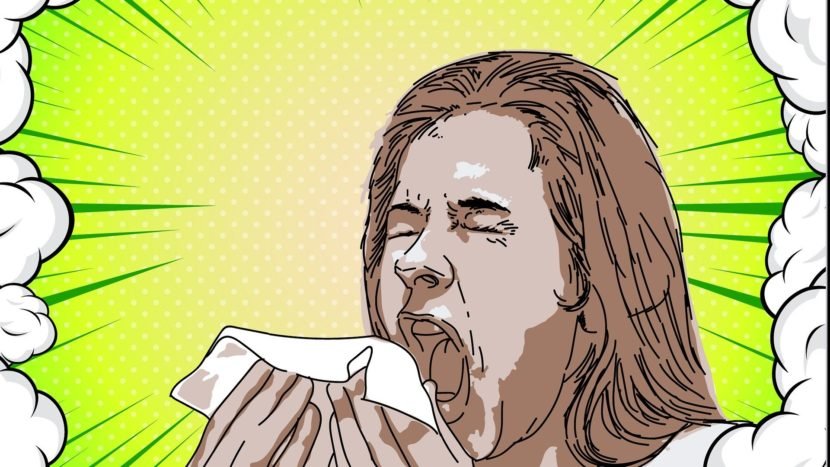Millions of people suffer from allergies every year and the causes of allergies seem to be as many as the people who suffer from them. The severity of an individual’s reaction to any given allergy can differ greatly from one person to another, and one allergic event to the next. Allergies range in severity from mild, to irritating, severe, debilitating, and even deadly. Around 30% of Americans are affected by allergies each year, and as many as 50 million experience annual recurring allergy symptoms.
The most common, most problematic allergic sensitivity is Hay Fever or allergic rhinitis. Many people miss work and other important activities on a seasonal basis when severe hay fever symptoms are not controlled.
For these reasons, many people seek relief from allergies, and many healthcare practitioners are looking for better ways to treat allergies. One of the most promising treatments to emerge over the years has been acupuncture and acupressure.
The Effects of Acupuncture on Allergies
While medication can reduce inflammation and suppress other symptoms of allergies, Western Medicine almost always has undesirable side effects. Few medications can resolve the underlying problem that makes a given person allergic to a particular substance. Conversely, acupuncture has been used for a number of years now by a wide range of practitioners to successfully relieve allergy symptoms.
Acupuncture is an ancient practice developed in mainland China. It has been used for a wide variety of conditions. Since becoming popular in the West, it has been frequently used as a complement to traditional medicinal science. Acupuncture stimulates specific vital points in the body and areas with particularly dense nerve clusters.
The practice sends signals to the brain that influence the way the nervous system functions. Acupuncture has been used to relieve stress, pain, nervous conditions, and much more. It has been used as a treatment for allergies for many years. Both patients and practitioners speak highly of its ability to reduce allergic reactions.
Only now, has empirical evidence surfaced, proving in a clinical setting that acupuncture and acupressure have a measurable, beneficial effect on allergy symptoms.
A New Study Indicates Acupuncture Works on Allergic Rhinitis
The study took aim at the most troublesome of all allergies, allergic rhinitis. It corroborates the reports by patients and practitioners that acupuncture is an effective way to treat allergies.
The study looked at 422 patients who tested positive for pollen allergies and presented with allergic nasal symptoms. The researchers randomly assigned participants to three different groups. One group was given 12 acupuncture treatments and took antihistamines as they normally would. The next group took 12 sham acupuncture treatments and antihistamines as they would normally do to combat symptoms. The third group took only antihistamines with no acupuncture treatments.
The research team found that those who received both real acupuncture and antihistamines reported the largest decrease in symptoms. They also reported using antihistamines less frequently than the other two groups.
While this study was limited to one allergy, it is promising that other, if not all chronic allergies, can be successfully treated through the regular use of acupuncture and/or acupressure.
Ask us how acupuncture treatments can help your allergy symptoms, today!
